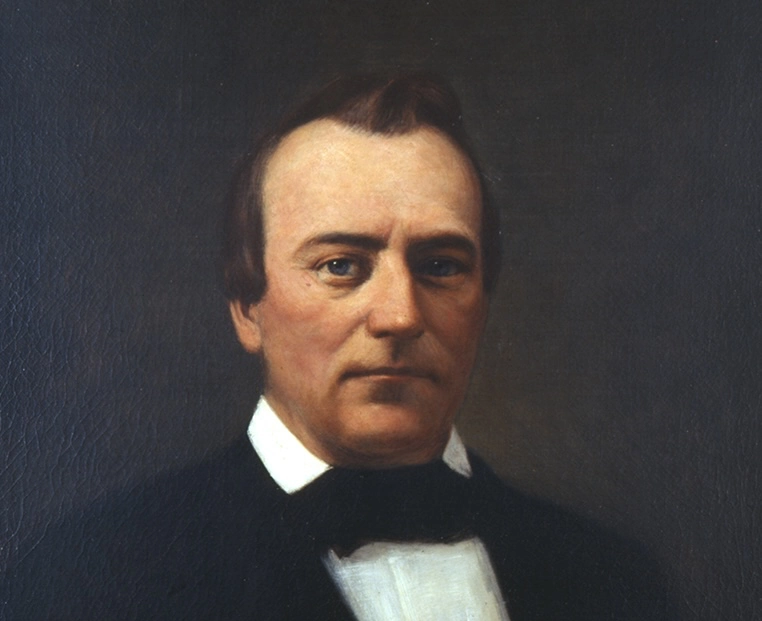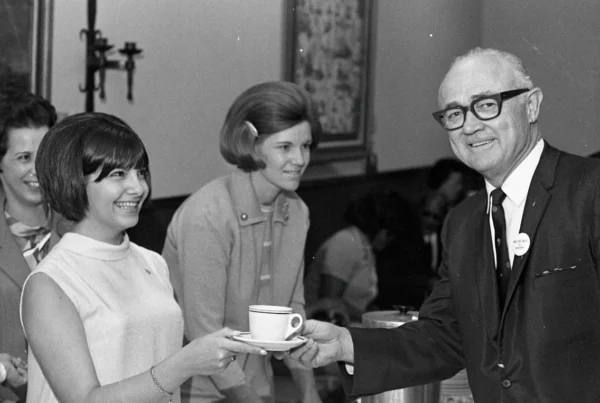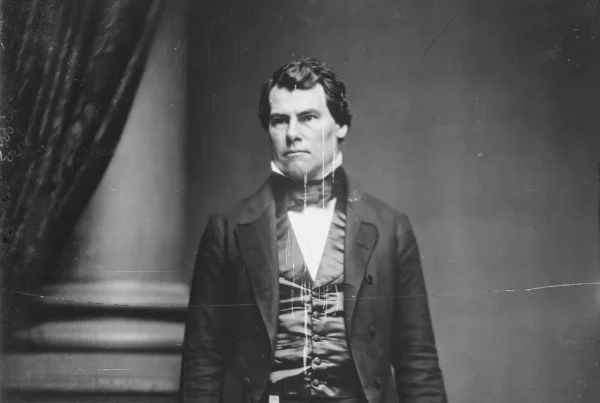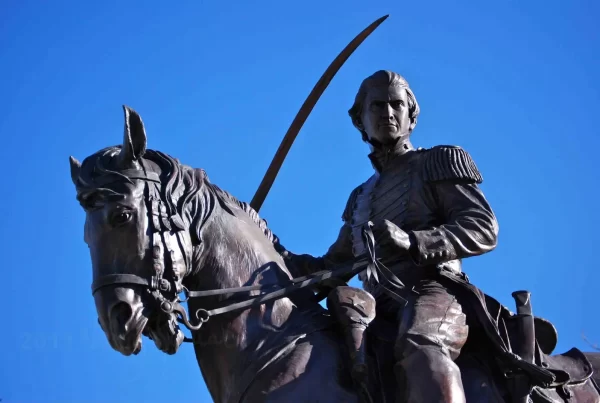Francis Richard Lubbock (1815–1905) served as the ninth Governor of Texas from 1861 to 1863, during the early and critical years of the Civil War. A committed secessionist and energetic administrator, Lubbock oversaw the transition of Texas from a Union state to a Confederate one and worked closely with Jefferson Davis’s government to mobilize manpower and resources for the Southern cause.
After his term, he served as a civilian aide in the Confederate War Department and fled with the remnants of the Confederate leadership in 1865. Briefly imprisoned, he was released and returned to Texas and eventually returned to government office.
Lubbock’s long life, public memoirs, and association with key wartime events made him a symbolic figure of the Lost Cause generation in Texas.
Early Life and Political Career
Francis Lubbock was born on October 16, 1815, in Beaufort, South Carolina. He moved to Louisiana as a young man and eventually settled in Texas in the 1830s, during the Republic era. He became involved in commerce and politics in Houston and quickly emerged as a capable and ambitious figure. Lubbock held a variety of public offices during the Republic of Texas period, including comptroller and district clerk. After annexation, he served in the Texas Legislature and developed a reputation for administrative skill and fiscal conservatism.
By the late 1850s, Lubbock had aligned himself with the pro-slavery, pro-secession faction of the Texas Democratic Party. His political rise mirrored the intensifying sectional conflict in the South. In 1861, following the secession of Texas from the Union and the resignation of Governor Sam Houston, Lubbock was elected to the governorship as an avowed Confederate nationalist.
Governorship: Mobilization for War
Lubbock’s term as governor (1861–1863) coincided with the Confederacy’s formation and the early organization of its war effort. He took office just months after Texas formally joined the Confederacy and faced the immediate challenge of converting the state’s legal, military, and fiscal systems to align with Richmond’s authority.
He worked closely with the Confederate government to organize troop recruitment, conscription enforcement, and supply logistics. Unlike his predecessor, Edward Clark, who had served briefly in an interim capacity, Lubbock embraced centralized Confederate control and supported military draft laws—even when they clashed with traditional Texas notions of localism and personal liberty.
Lubbock’s administration also oversaw the confiscation of Unionist and abolitionist property, the suppression of dissent, and the enforcement of loyalty oaths. His firm stance against suspected Union sympathizers, particularly in the Hill Country and among German Texans, led to controversial crackdowns and summary justice. The 1862 Nueces Massacre, in which Confederate forces killed a group of German immigrants attempting to flee conscription, occurred during his tenure and remains a dark stain on the era.
Though criticized in some quarters for overreach, Lubbock defended his actions as necessary for wartime unity and discipline. He repeatedly urged Texans to subordinate state interests to the broader Confederate cause, placing him among the more centralizing and ideologically committed Confederate governors.
Post-Governorship and Confederate Service
Lubbock declined to run for reelection in 1863 and was succeeded by Pendleton Murrah. Shortly afterward, President Jefferson Davis appointed him as an assistant adjutant general in the Confederate War Department. In this civilian capacity, Lubbock helped coordinate military administration from Richmond, working under the direct authority of the Confederate president.
As the Confederate government crumbled in 1865, Lubbock joined Davis and other officials in fleeing southward through the Carolinas and Georgia. He was captured alongside Davis in Georgia in May 1865 and imprisoned at Fort Delaware for several months. Unlike some Confederate officials, he was eventually released without trial and returned to Texas.
Later Life and Memoirs
Following his release, Lubbock retired from public life for several years, working in business and managing his personal affairs. From 1879 to 1891, he returned to state government as Texas State Treasurer, serving first under the post-Reconstruction Democratic administration of Governor Richard Coke. His return reflected the rehabilitation of many former Confederates during the Redemption period, as Democratic “redeemers” sought to reassert traditional Southern leadership.
In the late 19th century, Lubbock became something of a living relic of the Confederate past. He published a memoir, Six Decades in Texas, in 1900, which chronicled his life from the Republic era through Reconstruction. The book offered both personal recollection and partisan justification, portraying the Confederacy in heroic terms and defending the suppression of Unionists as necessary to preserve order.
He died in Austin on June 22, 1905, at the age of 89. His longevity and literary legacy cemented his symbolic role as a senior figure of antebellum and Confederate Texas. He is buried in the Texas State Cemetery.
Legacy and Historical Assessment
Francis R. Lubbock’s legacy is inseparable from the Civil War and the Confederate cause. As governor, he demonstrated administrative ability and unwavering ideological commitment to secession and Southern nationalism. He was effective in organizing the war effort within Texas, often more aligned with Richmond than with local resistance to conscription or centralization.
His involvement in wartime crackdowns and support for Confederate supremacy over state concerns placed him at odds with Texas’s older traditions of decentralization and frontier autonomy. In recent scholarship, his administration’s role in suppressing Unionist communities—including German Texans and Tejanos—has drawn increased scrutiny.
Lubbock County, established in 1876, was named in his honor, reflecting the high regard he held in postwar Democratic circles. For decades, he was remembered as a loyal Confederate and tireless public servant.
Lubbock’s writings, though partisan, offer a rare first-person account of the political transformation of nineteenth-century Texas across six decades.
📚 Curated Texas History Books
Dive deeper into this topic with these handpicked titles:
- Shifting Grounds: Nationalism and the American South, 1848-1865
- Colossal Ambitions: Confederate Planning for a Post–Civil War World
- The Texas Lowcountry: Slavery and Freedom on the Gulf Coast, 1822–1895
- A South Divided: Portraits of Dissent in the Confederacy
- This Republic of Suffering: Death and the American Civil War
Texapedia earns a commission from qualifying purchases. Earnings are used to support the ongoing work of maintaining and growing this encyclopedia.



